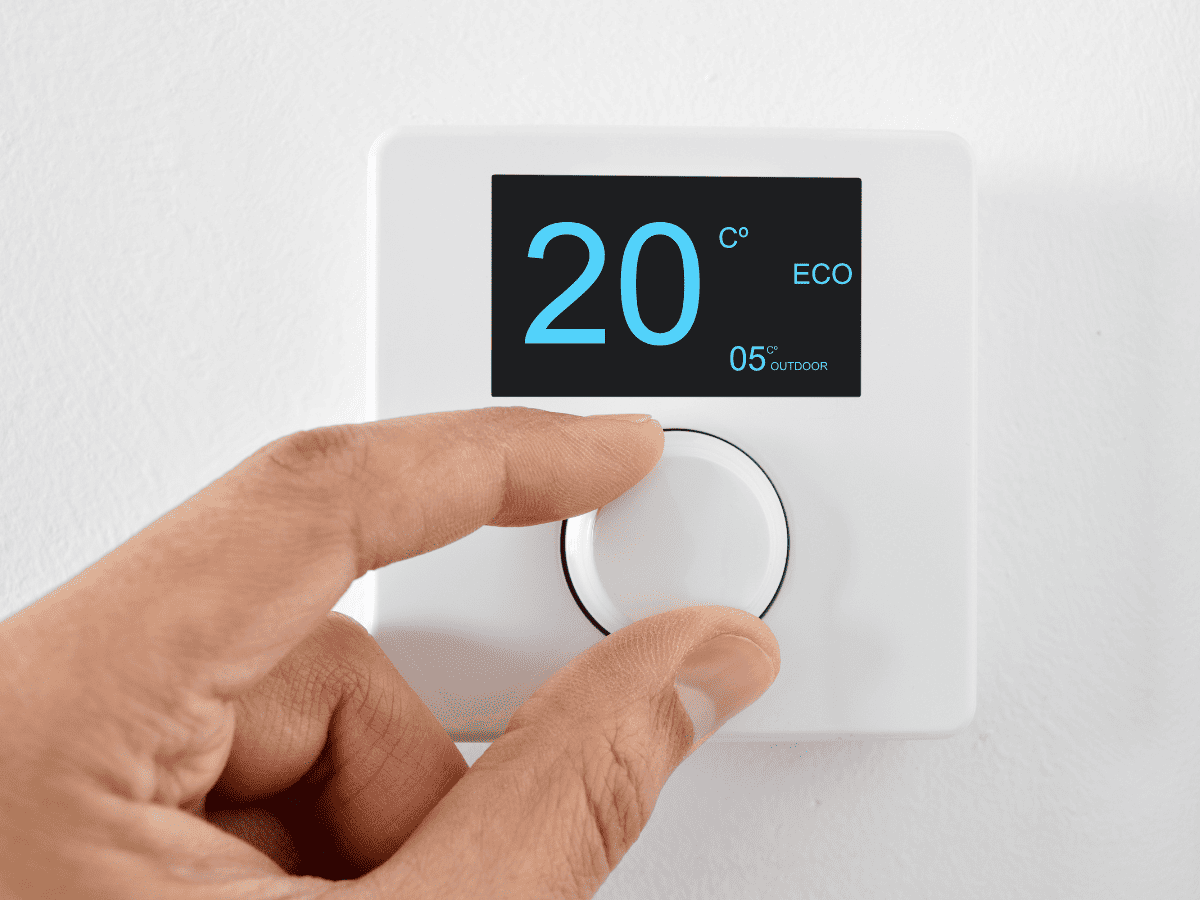When the summer heat hits, figuring out the best temperature setting for your AC becomes an absolute must.
You want to ensure your home is comfortable throughout the day, yet you don’t want to use excess power, so it’s important to strike a balance between the two. That then leads to the question of what temperature to set your air conditioner in summer.
When looking into the perfect temperature for your home, it’s critical to consider several factors to achieve the ideal balance. So in this article, we’ve given the ideal temperatures you should set your thermostat to while still being eco-friendly.
The Best Temperature While at Home
According to the U.S. Department of Energy, the recommended thermostat settings summer requires for your thermostat is 78 degrees Fahrenheit (or about 25.5 degrees Celsius). At this temperature, it should be cool enough to be comfortable without consuming excessive amounts of energy.
Of course, each household has its preferences for cooling. If the weather is still too hot, adjusting the temperature by a few degrees while at home is fine. However, always aim for two degrees at the most to reduce energy use as much as possible.
As a rule, for the best AC temperature settings, keep within a range of 74 to 78 degrees Fahrenheit, but never below 72 degrees. A setting that’s too low risks freezing the AC, causing its cooling efficiency to drop.
The Best Setting While Away From Home
If you tend to leave more often during summer, while you’re out, the answer to “what temperature to set air conditioners in summer” is 85 degrees Fahrenheit (29.5 degrees Celsius) or higher. According to the Department of Energy, this lets the air conditioner run less often. As a result, you end up saving a significant amount of energy and money.
Of course, if you have pets at home or even temperature-sensitive electronics, remember to adjust as needed to ensure a comfortable and liveable environment. Keeping the temperature high will save money, but these factors are important to keep in mind.
Factors That Affect Energy Efficiency When Cooling
When you want to save money and ensure energy efficiency, there’s much more to finding the ideal energy saving temperature for summer. Here are a few factors that can affect energy efficiency when cooling.
Routine Maintenance and Servicing
For the best performance and energy efficiency, your cooling system needs regular maintenance to ensure its parts aren’t damaged.
Homeowners should regularly replace air filters to ensure unrestricted and clean air. Also, keep plants and debris away from the outdoor unit and its vents.
As a good rule of thumb, always plan yearly professional maintenance to check and tune the system, ensuring all its parts are clean and working effectively. You may find thermostat services helpful as well.
Energy-Saving Appliances
For the more eco-friendly homeowner, it’s possible to save a lot more energy by switching to more energy-efficient AC models or systems.
The higher the unit’s SEER 2 rating is, the more energy efficient the unit will be.
Compared to standard models, equipment that has earned the ENERGY STAR label in particular will meet even the most precise energy-efficiency standards.
Appropriate and Effective Insulation
Along with thinking about what temperature to set air conditioners in summer, ensuring energy efficiency to save money can involve ensuring that your home has the right amount of insulation.
Your home’s insulation level is likely one of the most important factors when maintaining energy efficiency. Effective insulation helps to keep the cool air that the AC releases inside. This same insulation is also responsible for keeping the heat in during the winter.
If your energy bills seem high, but your AC is fine, the cause is more than likely poor insulation or air leaks. Ensure your house is adequately insulated, particularly the walls, your attic, and around windows and doors.
The Dimensions of the AC
Effective air conditioner operation depends on the appropriate size of the unit relative to your home.
A unit that’s too large can quickly cool an area, but it will often cycle on and off, causing energy waste and even damage to the unit. On the other hand, a unit that’s too small won’t be able to cool properly like you want it to.
If you aren’t sure if your AC is properly sized, contact a professional for help.
For Help With Your AC, Contact Hurliman
So there you have it: the answer to the question, “What is a reasonable temperature for a house in summer?”.
While there’s no one size fits all solution, it’s typically advised to set the thermostat to a setting that combines indoor comfort and energy savings.
If you want to schedule servicing for your AC unit, contact us at Hurliman Heating & Air Conditioning today. Our team of professionals is equipped with the right tools and knowledge to help you with all of your HVAC needs.






